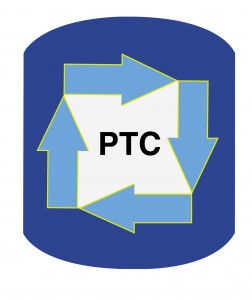PTC excels in performing reactions with sulfur nucleophiles. In this case, TBAB is used to transfer and reaction inorganic polysulfide and hydrosulfide with alkylating agents, most notably bis(2-chloroethyl)formal. The PTC patent by Toray described here has more detail and different conditions than a PTC patent by Toray on which I was an inventor a decade ago that used methyl tributyl ammonium chloride as the phase-transfer catalyst to produce liquid polysulfide (Gilmore, J.; Potts, K.; Hobbs, S.; Halpern, M.; Mundle, T.; (Toray Fine Chemicals) US Patent 6,939,941, 06-Sep-2005)
The addition of liquid polysulfide polymer with the right properties to an epoxy resin has many advantages (see below). PTC provides the opportunity to achieve the right properties that include high terminal thiol group content, low viscosity, fast rise of hardness when cured and high flexibility.
The patent describes variations in PTC process conditions, mole ratios and temperature. The inventors report that the liquid polysufide is formed under these PTC conditions without the formation of solids, viscosities in the range of 220 to 430 mPas, MW in the range of about 800-1000, SH content of about 9%-16% by weight and low color.
If your company performs any reaction with sulfur nucleophiles that could benefit from cost reduction or other process improvement, now contact Marc Halpern of PTC Organics to explore using phase-transfer catalysis to achieve lower-cost higher-performance green chemistry.
More information about polysulfides: A liquid polysulfide polymer has high compatibility with an epoxy resin, and can be mixed with an epoxy resin at various rates, and a curable composition can be obtained by adding an amine to the liquid polysulfide polymer. Polysulfide polymer addition to an epoxy resin has an effect of providing flexibility to a hard and brittle epoxy resin cured material to improve adhesion. It is known that, when a liquid polysulfide polymer is added to an epoxy resin composition as a primer to join old and new concrete, adhesion to a wet surface is improved, and cohesion after being cured is good. When a polysulfide polymer is added to an epoxy resin, adhesion to a hardly adhesive rubber is improved. Furthermore, when a mixture of an epoxy resin and a polysulfide polymer is added to a sealant, resistance of the sealant is improved for long periods.


